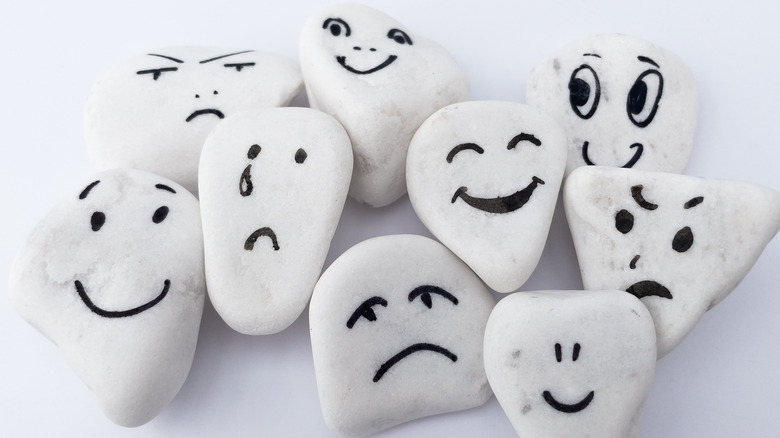Ignoring negative feelings when they come to the surface is something many people do. Maybe you were hurt by something a friend said but chose not to say anything to them, or you were having a bad day but put on a happy face to the rest of the world when you left the house. If you can relate to either of these scenarios, you aren’t alone, but is holding our emotions inside healthy for us? To come to that conclusion, it might be helpful to first investigate the purpose of emotions.
We all experience a wide range of emotions every day, but why? According to Verywell Mind, the brain is thought to be the source of our emotions. The hippocampus, amygdala, and hypothalamus — among other structures in the limbic system — are partly responsible for generating emotion. Although we can roam about our day not putting much thought into our emotions, they actually serve an important purpose to us. In fact, the famous biologist Charles Darwin believed that they even help us to survive. Emotions motivate us to take action, like running away when we see a bear or pursuing someone we have romantic feelings toward.
As reported in a 2024 article published in Research on Education and Psychology, emotions are not only important for us as individuals, but they are significant in social connections. Our emotions can be expressed on our faces and through body language, which may help others better understand how we are feeling.
What happens to your body when you suppress emotions?

In spite of the importance of emotions to our survival, we often hide what we are feeling from those around us. Strong emotions such as anger, fear, disappointment, and sadness are more likely to be pushed down and hidden from others, states Healthline. As these feelings are often perceived more negatively in social contexts than emotions like happiness or excitement, people may feel apprehensive about sharing them.
However, fighting against the emotional messages our bodies are sending us may have its consequences. During a 12-year follow-up, a 2024 study published in The Journal of Psychosomatic Research found a link between emotional suppression and premature death from cancer and other diseases. The researchers also discovered that suppressing anger was associated with an increased mortality rate. It has been reported that those who have difficulty expressing their anger may have a greater risk of cardiovascular diseases, according to Healthline.
Some may hope that by ignoring their emotions, they will eventually go away. As explained by the Calda Clinic, it appears the opposite is true. The body continues to store suppressed emotions, which may contribute to stress-related illnesses. In addition to mental health problems like depression and anxiety, physical symptoms can manifest, such as problems with digestion, sleep, muscle pain, and fatigue (per Healthline). Working to suppress your emotions requires extra energy, and can become a heavy burden on your shoulders that is waiting to be lifted.
How to release your emotions in a healthy way

To prevent the consequences of suppressing emotions, it may be helpful to learn how to cope with strong emotions rather than avoid them. As noted in Positive Psychology, one way to acknowledge your emotions is by noticing where you feel triggered. For example, someone might feel triggered when their best friend doesn’t invite them somewhere. This can bring up a range of emotions, such as anger, sadness, rejection, or insecurity. Verywell Mind points out that accepting your emotions and working to better understand them may bring more relief than avoiding them altogether.
Many people find solace in speaking with a professional, such as a counselor, who can help them gain perspective about their feelings. Regular exercise and implementing meditation into your daily routine are also healthy ways to release pent-up emotions, according to Verywell Mind. When our emotions are bubbling to the surface, our thoughts can feel scattered and confusing. Mountain Laurel Recovery Center provides another healthy alternative to suppressing emotions: journaling about them instead.
If you are experiencing intense emotions and feel the urge to cry, it may be helpful to let yourself do so. It’s okay to cry, and research suggests that crying provides health benefits, including the release of feel-good endorphins that help soothe pain (per Harvard Medical School). Whenever you feel compelled to fight back your tears, remember — it could relieve some of your stress to let them flow instead.




